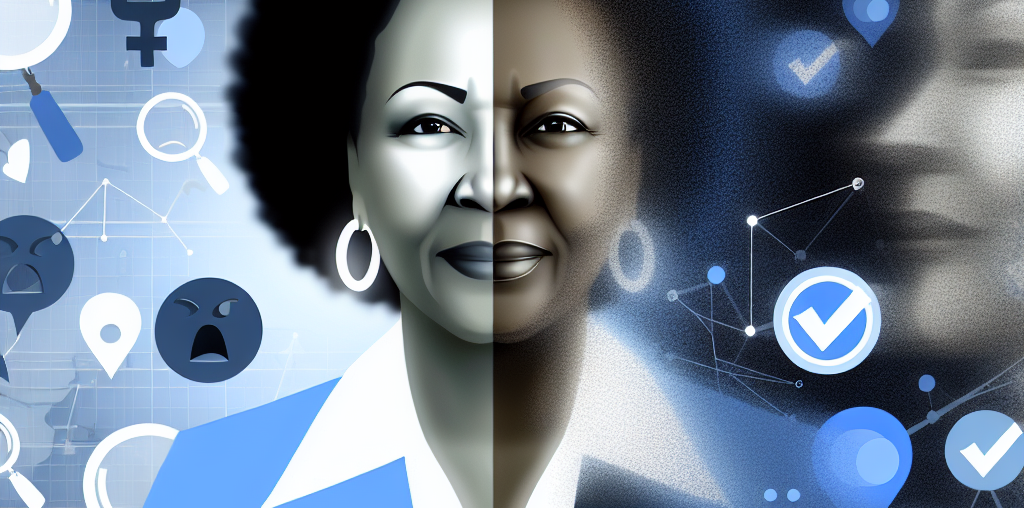Debunking the Kamala Harris Election Conspiracy Spreading Online
In an age where misinformation and conspiracy theories seem to spread at the speed of light, the latest target in the online rumor mill is U.S. Vice President Kamala Harris. A new conspiracy theory surrounding Harris’s involvement in the 2024 election has gained momentum, raising alarms about how easily such false narratives can take hold. It’s essential to highlight the baseless nature of these claims and emphasize the importance of fact-checking in the digital age.
What Is the Conspiracy Theory?
The conspiracy making rounds on social media platforms suggests that Vice President Kamala Harris will play a prominent and nefarious role in the upcoming 2024 election. According to the theory’s proponents, there are secret plans in place that would allow Harris to either manipulate the outcome of the election or take control of the White House in a manner that circumvents the democratic process. These claims have no factual basis, but that hasn’t stopped them from gaining traction.
The core of this theory revolves around the idea that Harris, with the support of various governmental and non-governmental actors, will somehow take advantage of potential legal challenges or other crises during the 2024 election to assume unchecked power. These assertions are not only false but also reflect a larger trend in the weaponization of misinformation to erode trust in governmental institutions.
Fact-Checking the Falsehoods
First and foremost, there is no evidence to support the claim that Kamala Harris is involved in any scheme to undermine the integrity of the 2024 election. **Fact-checkers** have consistently debunked these rumors, pointing out that the conspiracy is built on layers of speculation and wild assumptions rather than verifiable facts.
Several key points invalidating the theory include:
- **No legal basis**: The United States has a robust electoral system with well-established checks and balances. Any attempt to manipulate the outcome of an election would require unprecedented collusion across numerous levels of government, which is highly improbable.
- **Transparency in the election process**: U.S. elections are conducted with a high degree of public scrutiny. Any significant irregularities would be subject to immediate investigation and oversight by multiple agencies, making it nearly impossible to carry out an “undetected” plot.
- **No credible sources**: Prominent news outlets and investigative journalists have found no merit to the conspiracy theory. In fact, the claims appear to originate from fringe online communities rather than reputable sources.
The Role of Social Media in Amplifying Misinformation
The rise of social media has enabled conspiracy theories to spread more virally than ever before. Platforms like Twitter, Facebook, and YouTube have become breeding grounds for misinformation, thanks to algorithmic amplification and echo chambers that thrive on sensationalism. Unfortunately, the Kamala Harris election conspiracy is no exception.
Social media platforms are often slow to act on disinformation, allowing false narratives to reach thousands, if not millions, of people before they are flagged or removed. This enables the conspiracies to gain legitimacy among those who may already harbor distrust toward political figures or institutions.
In this particular case, the rumor about Harris has been amplified by right-wing commentators and fringe groups with a history of promoting unfounded claims. These actors often use **clickbait headlines** and emotionally charged language to attract attention and encourage shares, furthering the reach of the baseless theory.
Why These Theories Matter
While some might argue that conspiracy theories like this are harmless or too outlandish to be taken seriously, the reality is that such falsehoods can have far-reaching consequences. **Disinformation** undermines public trust in democratic processes, leading to increased polarization and potentially even violence.
Misinformation campaigns can also diminish voter turnout. If people believe that an election is rigged or that certain political figures wield undue power, they may lose faith in the system altogether. This can have a chilling effect on electoral participation, especially among vulnerable groups who may already feel disenfranchised.
Additionally, the spread of such theories opens the door for foreign actors and bad-faith domestic players to exploit these narratives for political gain. Whether it’s to sow discord or influence voter behavior, **manipulating public perception** through falsehoods is a growing concern in modern elections.
What Can Be Done?
The responsibility to combat misinformation lies not just with social media platforms but also with individuals. Here are some actions everyone can take to stop the spread of harmful conspiracy theories:
- Fact-check before sharing: Always verify the credibility of a source before sharing any news or information, especially when it comes to politically charged content.
- Report false content: Most social media platforms offer tools for reporting disinformation. Use them to flag posts that spread unfounded claims.
- Engage in critical thinking: Question the motivations behind a claim. Who stands to benefit from promoting a particular conspiracy theory? Always approach sensationalized information with skepticism.
- Support journalism and fact-checking organizations: Trusted news outlets and fact-checkers play a crucial role in debunking false narratives. Supporting these institutions helps uphold the truth.
The Bottom Line
The Kamala Harris election conspiracy is just the latest in a long line of baseless claims designed to sow distrust in the democratic process. While it may seem tempting to dismiss these theories as fringe, their capacity to spread on social media and influence public opinion makes them a legitimate concern.
It’s crucial to continue debunking falsehoods with **facts** and to remain vigilant in the face of growing misinformation. The health of our democracy depends on it.

